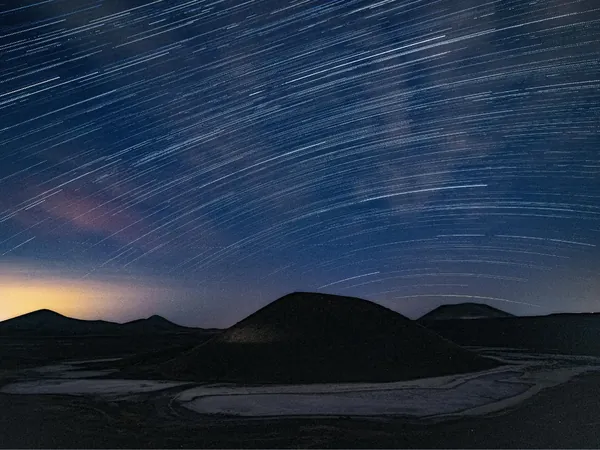
July's Celestial Spectacle: Three Meteor Showers You Won't Want to Miss!
2025-07-12
Author: Yu
July is here, and while the Full Moon may be behind us, a dazzling array of meteor showers is set to light up our night skies! Get ready for a cosmic show as three remarkable meteor showers grace both the Northern and Southern Hemispheres this month.
Alpha Capricornids: A Dazzling Display!
Kicking off the celestial excitement, the Alpha Capricornids meteor shower begins on July 12. Hailing from the constellation Capricorn, this meteor shower may be modest in frequency but shines brightly enough to captivate stargazers. Expect the peak viewing on the nights of July 29 and 30. Though you might see only about five meteors per hour at its height, their brilliance is assured.
What makes the Alpha Capricornids special? They are remnants of the comet 169/NEAT, and their luminosity allows them to cut through light pollution, making them visible even in urban areas! With a waxing crescent Moon enhancing visibility, the best time to catch this enchanting show is after 10 PM.
The Perseids: The Summer's Star Attraction!
Get ready for the star of the season—the Perseids meteor shower! Known for its stunning displays, this shower starts releasing its meteors in mid-July and continues into August. Peak nights are anticipated on August 12 and 13, with the shower powered by Comet Swift-Tuttle, which takes a staggering 133 years to orbit the Sun.
The Perseids are prolific, delivering between 50 and 75 meteors an hour when conditions are right. Unfortunately, due to a waxing gibbous Moon this year, visibility may be challenging, so plan your stargazing escapades for after midnight for the best chance to witness this extraordinary event.
Southern Delta Aquariids: A Surprise in the Sky!
As July rolls on, the Southern Delta Aquariids will light up the night starting around July 18. These meteors originate from the short-period comet 96P/Macholz and culminate in their peak on July 29 and 30. While their rate hovers around 25 to 30 meteors per hour, they've surprised viewers in the past with exceptional displays.
What truly sets the Southern Delta Aquariids apart? Their unique trails that linger in the night sky, adding an element of wonder. With a waxing crescent Moon setting early in the evening, conditions for viewing this shower are ideally positioned.
Mark your calendars and find a dark spot away from city lights—the night sky is about to become your favorite destination this July!

 Brasil (PT)
Brasil (PT)
 Canada (EN)
Canada (EN)
 Chile (ES)
Chile (ES)
 Česko (CS)
Česko (CS)
 대한민국 (KO)
대한민국 (KO)
 España (ES)
España (ES)
 France (FR)
France (FR)
 Hong Kong (EN)
Hong Kong (EN)
 Italia (IT)
Italia (IT)
 日本 (JA)
日本 (JA)
 Magyarország (HU)
Magyarország (HU)
 Norge (NO)
Norge (NO)
 Polska (PL)
Polska (PL)
 Schweiz (DE)
Schweiz (DE)
 Singapore (EN)
Singapore (EN)
 Sverige (SV)
Sverige (SV)
 Suomi (FI)
Suomi (FI)
 Türkiye (TR)
Türkiye (TR)
 الإمارات العربية المتحدة (AR)
الإمارات العربية المتحدة (AR)